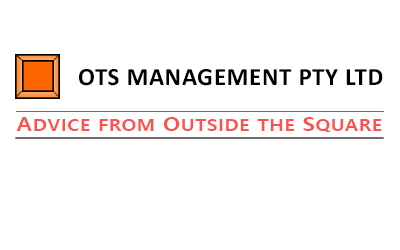There are many small business owners reading this, and they have probably read my earlier posts on business improvement and said "that's not for me, I'm just a grinder, grinding away day to day in my small business".
I'm thinking of Dave the floor sander who did the new floorboards at my house. I'm also thinking of Adam the housepainter who did such a good job on my house and Brad the electrician who comes over anytime I call him. These are all hard working small business owners who employ anything from none to 5 people, organising their work procedures, their finances and their people as best as they can, where every day is a busy day just "doing the stuff".
If you are one of them you are probably thinking that all this "strategy advice stuff" is not for you. And yet, every time I talk to Dave, and Adam and Brad, they are always willing to talk about their latest ideas, about how they improved sales by getting a telephone answering service, about how once a year they take their staff inter-state to watch a football game as a reward and to build team spirit, about how they sit down together to work out priorities during the day. Dave and Adam and Brad are doing this "strategy advice stuff" without realising it because what they are doing is not couched in the language or the texts of Harvard Business School or a suit-wearing consultant like me, out to impress. They are using their experience and their common sense "doing the day to day stuff".
So what common-sense things can any small business owner put into action to grow their business?
1. It is common sense to look after your people. In any business (bar none!) your greatest asset is your people. They have the face to face encounters with your customers, they have the experience you taught them, they allow you to do your work. And if "your people" are just you or you and members of your family, looking after them is even more important. Brad is an electrician who employs only 2 people, intentionally wanting to keep small because of capital. His father also works in the business. Once a year he flies them across the country to run a weekend's discussion about how they can work more efficiently, and in an evening he takes them to a high profile football match. Brad has never lost an employee and discussion is never about pay scales.
2. It is common sense to look after the money. You can and should employ an accountant to do your books at the end of the year, but you should also get her to TEACH you how to understand your finances day to day. You need to understand your "normal" cash flow - how long it takes to get paid versus how long you need before you have to pay a supplier. You need to understand profit margins so you can better price your products or your services. You need to understand the difference between the cash balance you see in your bank statement against the "reconciled" balance that takes out unpresented cheques.
3. It is common sense to look after your customer. This can take effect in different ways and at different intensities. For example Adam cleans up after he paints a house. No, he doesn't just clean up the paints and the flakes and dust left behind after painting, he cleans up the garden sweeping up leaves, he takes his rubbish away and doesn't use your bin, he sweeps the footpath OUTSIDE your house for goodness sake! Do you know who I'm going to call again when I need some painting done?
These are three common-sense things any small business owner can do. Not only will they grow the business, they will grow your "brand", market your services, instill a corporate culture - you know, all that "strategy advice stuff".
So, I'd like to hear from small business owners - what do you do at a practical level to put strategic organisational consultants like me to shame?




